
Pokémon Sun/Moon (3DS) - Review
by Spencer Manigat , posted on 24 December 2016 / 11,530 ViewsFull disclosure; this review is based on a review copy I received of Pokémon Sun. I also received a review copy of Pokémon Moon, but didn't feel the need to play both for this review. If you've played a Pokémon game before, then you're well aware that the differences between two versions are miniscule, with a few inconsequential differences between the two to encourage interaction between players. I played together with a group of three other friends, only one of which had Pokémon Moon. I'm well aware of the differences between the two versions, and regularly spoke to him about these differences. I've played every single game in the mainline series, many multiple times through, as well as many of its various spin offs. It wouldn't be far reaching to say that my adoration for this franchise borders on obsession, and I would consider myself a bit of an expert.
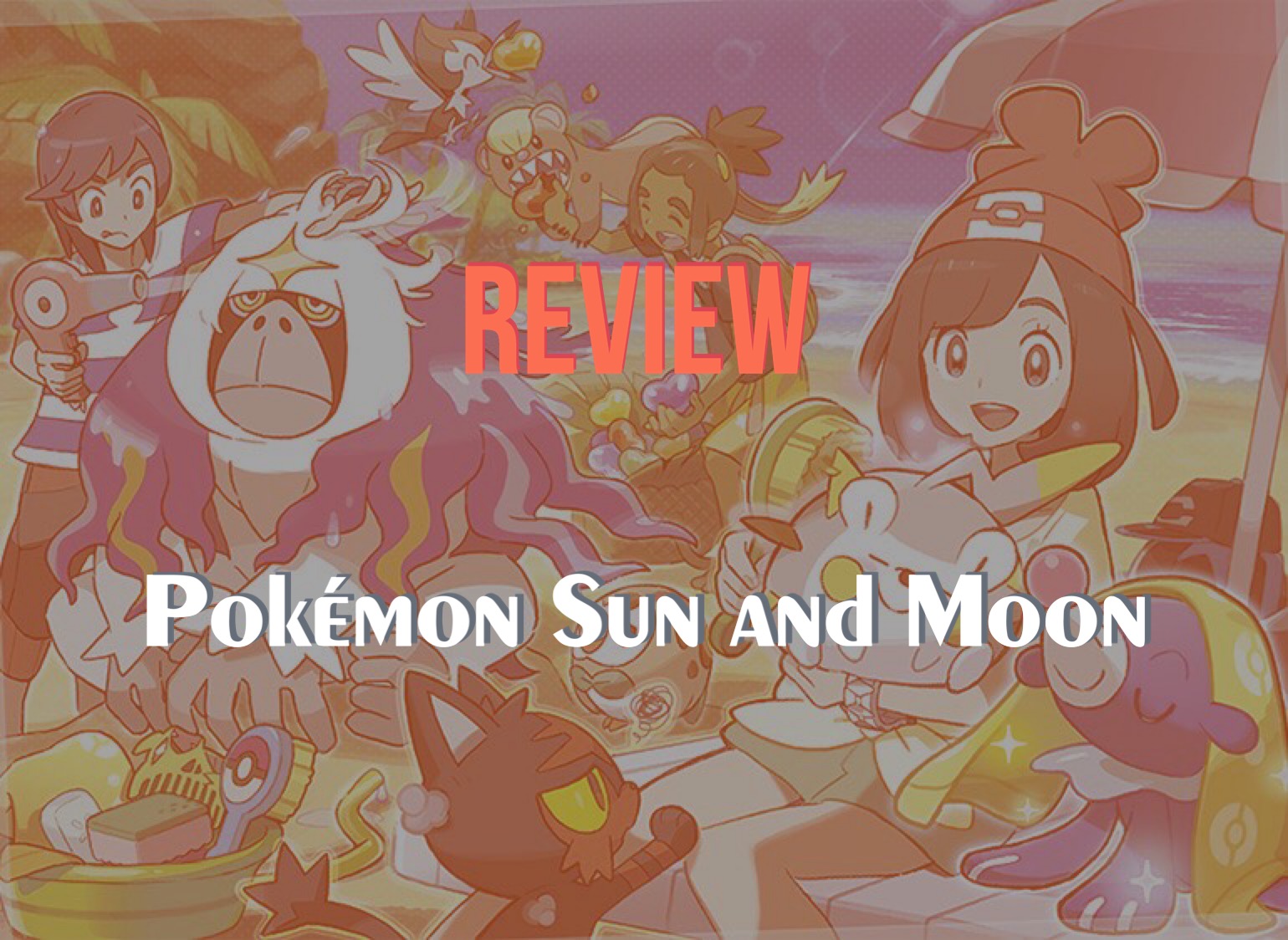
---
HOW DOES ONE CRITICIZE A STEP IN THE RIGHT DIRECTION?
Well, the answer is simple. You just do it. I just do it. That's my job - my responsibility to you, the reader. There are things to criticize about Pokémon Sun and Moon, but it just feels... unfair? The game does so many things that I was afraid Pokémon would never do with the series. For one, it's more cinematic; more so than any other game in the franchise. That's great, but only within the bounds of Pokémon. If you're a fan of Pokémon, you've probably heard this phrase before. In fact, I'm willing to bet you've even used it yourself.
It's good "for a Pokémon game."
"For a Pokémon game." That's where I'm stuck. Because the presentation isn't very good outside of the context of Pokémon. Characters have dead eyes with stiff animations and the player character regularly has an immersion-breaking flawed expression that doesn't match up with the tone of the scene taking place. So while it’s so much better than any of the Pokémon games that have come before it, it's also so much worse than "good." How am I supposed to criticize that? The answer is, I just have to.
Sun and Moon are the most story driven Pokémon games since the 5th generation games Pokémon Black and White. While that's great, it can backfire because a bigger focus on story will naturally raise expectations when it comes to what that story is and how it's composed. This was the case for Black and White. It felt like the ambitions of the story superseded the actual quality of writing. Team Plasma, the antagonists of the game, fought to liberate Pokémon from their trainers. An interesting premise, but nothing was ever done with it beyond just surface-level stuff. N, Team Plasma's king and leader, was at the center of the games' main philosophical conflict between "truths" and "ideals," with the player taking the opposing viewpoint. Another interesting premise, one that could have afforded the player the agency to carve his or her own character as well as N's by means of moral choices, but again, nothing is ever done with it, and the words are ultimately meaningless within the context of the games.

BUT WHAT ABOUT SUN AND MOON?
All of this is to say that Sun and Moon fair much better than those games because the story is far more intimate and far less ambitious. In a lot of ways, the games feel like a sort of vacation from the norms of Pokémon in general, and that lends to a laxer atmosphere. Of course, to say that they fair better isn't to say that they come out unscathed. While I'll get into my issues with the actual story structure much later, with regards to just characters, Lusamine, president of the Aether Foundation who protect and heal hurt Pokémon, is assuredly the biggest let down of a character in the game, with the Aether Foundation as a whole being the most deflated twist.
It all really comes down to pacing. They're introduced far too late into the story, and for far too brief a time, for anything that is revealed about them to have any sort of impact. Lusamine also lacks even the slightest of subtlety, something that even Guzma, the one-dimensional leader this entry's villainous Team Skull, was able to achieve. Team Skull in general were a highlight for me. In sync with the games' more carefree tone, they functioned more as comic relief. The dialog was just cheesy enough and Team Skull just pathetic enough for me to end up smiling every time they appeared on screen.
Good dialog is really what elevated so many of the characters for me. A lot of characters who could have been boring and one-note were saved by the snappy banter they'd exchange amongst themselves. That includes all of the Trial Captains (this game's replacement for Gym Leaders), the four Kahunas (this game's pseudo-replacement for the Elite Four), Professor Kukui, Lillie, and even Hau. The mysterious Lillie in particular is a stand out, and has become one of my favorite characters in the series.

As mentioned earlier, all of this is embellished by the largest focus on presentation that Pokémon has ever seen, and it just feels really low budget. This is the first bit in which the dilemma I mentioned before rears its head. It's such an improvement over what has come before, and it bodes supremely well for how Pokémon will present itself in the future, but for the "right now" it's not even good presentation for the hardware. At least specifically when it comes to story-telling. Sun and Moon have opted to refrain from featuring voice acting, which causes this cheap-feeling disposition when you see these characters silently and stiffly pantomime genuinely fun-to-read dialog that you're too focused on to even really pay attention.
Pokémon is the second largest video game franchise in the world, second to only Mario, so it's extremely frustrating to see them be so conservative about this stuff when they're one of the few franchises who can actually afford to splurge on better presentation. But it's better than what's come before, demonstrably so, and that's tough to criticize.
The same is not the case, however, for the setting of the game: the Alola Region. Pokémon has gotten a lot of flak amongst some its more hardcore fans for growing more and more linear with each new entry, and Alola is no different. I guess one could argue that it's more appropriate here, given the theming, but the whole game felt like I was on one of those amusement park trolleys, being given a tour of all of Alola's most shiny attractions. And they are shiny, no doubt about it, but it doesn't feel like you're exploring a world.
BUT IT'S MORE THAN JUST LINEARITY
The true culprit is reduced geographical complexity. Routes are less complex, caves are less complex, buildings are less complex, and worst of all, the way they all interconnect is less complex. It just leads to this really uninteresting B-line to the next plot beat without any sense that you're getting lost in this vast world, and that's something Pokémon used to have. It takes streamlining to an unnecessary degree that's detrimental to the game. I could list off a bunch of specific examples, but there's one in particular which seems to thematically stand out.
Alola is a tropical country of four distinct islands, thematically based on Hawaii. I cannot emphasis enough just how excited I was about this. Hoenn, another tropically themed region from the 3rd generation of Pokémon, is one of the most geographically interesting regions that Pokémon has ever featured. Returning to this kind of setting would present so many cool opportunities for a region like Alola. One of the coolest things about Hoenn compared to other regions were its extensive water routes. Now I know that this is often debated upon, but hear me out. The great thing about Hoenn's water routes, and large bodies of water appearing in games in general, is that they do an unmatched job of increasing the perceived sense of scale in a game without needing to increase the actual physical scale of the game. Too much water? Not enough water, if I'm the one you're asking.
Hoenn also had by far the most diverse selection of traversal options when it came to aquatic exploration. Sure, you had your typical surfing, but you also had water currents that made you think about how you went about exploring. You had caves and islands and wrecked ships to spelunk. You had an intricate diving system which allowed you to explore the depths of the ocean floor, finding entire areas, caves, and in one case an entire city which was only accessible that way. You could fish basically anywhere, and you could even climb up waterfalls.

So, you can imagine my immense disappointment when I discovered that water exploration in this game amounts to nothing more than investigating puddles. I get that it's more convenient, I totally do, but there comes a point where you can streamline something too much, and it begins to taste artificial and plain. That's my issue with Alola - it’s too sterile. I love the actual towns and cities. They're diverse and memorable and have great themes, but the paths to get there are so mindless, and it just makes exploring the world boring, with little reason to go back after the game is done.
This is a poor segue, but I'd like to talk about conveyance and play conditioning with regards to Sun and Moon. For those unaware, conveyance is basically how a game teaches, or "conveys," its mechanics to the player. A game with good, graceful conveyance does this implicitly, while a game with poor, clumsy conveyance does it explicitly. Now, depending on who you ask, Pokémon will be known either for having good conveyance or poor conveyance. The most obvious example of how Pokémon regularly uses conveyance is in its starter Pokémon/Gym Leader/Elite Four set up. As of generation 6, there are 18 different Pokémon types to remember, all with different strengths, weaknesses, resistances, and immunities to remember as the different types interact with one another.
Learning all of these type match-ups would obviously be incredibly intimidating for any new player, so the developers elected to structure the entire campaign of each Pokémon game around teaching the player about all of the different types gradually and incrementally as they played through the campaign. First, by introducing the player to the concept of types and their "rock, paper, scissors" nature via the player being gifted one of three starter Pokémon. If you've played a Pokémon game before, you know how the rest of this goes. You go on an adventure across the country, defeating 12 bosses of varying types until you're rewarded by beating the game and becoming the champion of the associated region. This is the template by which every Pokémon game abides.
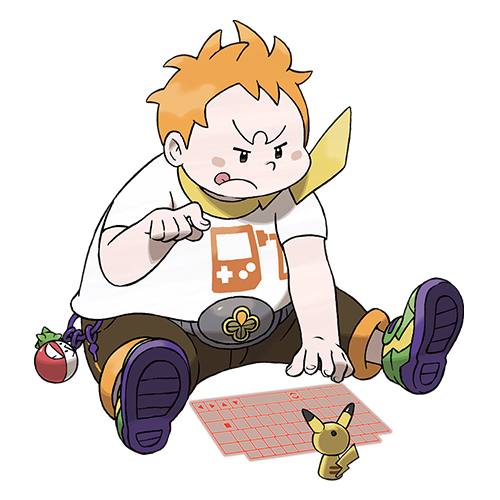
BUT IS THIS GOOD CONVEYANCE?
And does it even matter? At first glance, it could appear to some to be expert conveyance, but the truth is that it's not. There are two major problems with setting a game up like this. Earlier, I defined poor conveyance as being explicit. What I mean by that is that it interrupts progress to teach you the rules of the game. It's not invisible. Pokémon takes this a step further by literally anchoring progress, plot, and player choice in the case of starter Pokémon, to a campaign-wide tutorial for type match-ups.
That Pokémon is formulaic is easily the most common line of criticism thrown at it, and poor conveyance is almost entirely the reason why. Instead of having where you go next being dictated by a unique and situational character motivation driven by the main conflict of the story, too much of it is dictated by the next spot to take your next lesson, with the conflicts existing around that.
"But Spencer," you may be thinking. "Sun and Moon don't have Pokémon Gyms anymore! Now there are trials, and Trial Captains, and Totem Pokémon, and Kahuna's, and-" it's all the same thing. Trials are a spin on Pokémon Gyms, Trial Captains are a spin on Gym Leaders, Totem Pokémon gym leader matches, and Kahuna's are a spin on the Elite Four. It's an altered implementation of the same thing with the same end goals. So, why does having graceful conveyance even matter? Because it allows experienced players to enjoy a game unimpeded while remaining accessible to new players.
When you first start up Pokémon Sun and Moon, you'll be given one of three Pokémon. Either Owlett, the Grass-type owl, Litten, the Fire-type cat, or Popplio, the water-type sea lion. I don't like starter Pokémon because the selection is so small that it feels like every trainer will end up having a similar team. I understand the need to gift the player with a Pokémon to start out with, but I don't understand why I, an experienced player, am forced to start off with one of these three Pokémon in particular. I've already learned my type match ups. I have no need for what are essentially "training wheel" Pokémon when I've already done my homework and learned that lesson.

It's not like it's a canonical thing either. You will regularly meet trainers without starter Pokémon. There's an actual class of trainers called Breeders whose literal job is to breed young Pokémon for new trainers. It would be incredibly easy to allow more experienced players to have access to one Pokémon they really enjoy via a breeder instead of a starter Pokémon, but the developers are so afraid that new players will skip their tutorial that everyone has to participate, meaning it can sometimes take hours before some players have access to the first Pokémon that they like.
But the starters are frankly just a nitpick. Where this really starts to drastically impact the game, every Pokémon game, is in its story. I said before that it fared better than Black and White because it wasn't too ambitious for its own good, but this has to be said - a critique of one Pokémon game is a critique of them all. While there is so much to love about the characters and the way they interact with each other, there's so much to dislike about how bland the actual moment-to-moment story here is. So much of that is because half of the plot involves just participating in these rote and sterile trial tutorials, while the other half is trying to duct tape this small and intimate story about family and bonding and interdimensional travel onto that.
It just ends up feeling so hacked together and it doesn't need to be like that. Pokémon Contests were a mini game introduced in Pokémon Ruby and Sapphire, and they were framed as this sort of optional alternative to the Pokémon league that didn't end up having any impact on the story. The key word here is "optional." Why not make the gym challenge an optional part of Pokémon in this very same way, and focus the entirety of the storyline on actual character-driven conflict? I'm sure many of you didn't know this, but you actually can go back and battle all of the Trial Captains like a proper gym battle.
This easily could have been extended to the trials and the Pokémon League as a whole, but the developers are afraid that new players won't learn the types and will get lost. Even though the entire basis of that worry is moot now that battles will inform the player of which move types will negatively or positively effect which Pokémon, a decision I'm entirely for, by the way. Seasoned players have to sit through yet another homogenous campaign so that new players can learn all of the new types that they actually don't even need to learn anymore.

GYM TO GYM - TRIAL TO TRIAL
We malign other games for becoming too formulaic, but then praise this one when it's doing all of the same things. Why? Because it's a step in the right direction. Because Trial Captains truly do have some positive differences that feel fresh when compared to what's come before. Because gradually introducing the player to the various Kahunas throughout each island is so much more compelling than how prior games handled their Elite Fours, not having much interaction outside of league battles. It makes them feel more like real characters who you care about by the time you end up fighting them, so how does one criticize that progress without feeling unfair?
The other term that I brought up earlier was "play conditioning." Play conditioning is actually a term coined by YouTuber hbomberguy, and I love it. It's basically when a game, through mechanics and level design alone, is able encourage the play style that is most optimal for enjoyment. You'll often hear gamers say something like this:
"You're not enjoying the game because you aren't playing it right."
If a player is enjoying a game less because they aren't being led to a play style that would be more fun, that game probably has poor play conditioning. Sun and Moon have poor play conditioning.
Again, this is another one of those "when you criticize one Pokémon game, you criticize them all" things, but Pokémon does an absolutely terrible job of encouraging the most fun play styles for maximum enjoyment during the campaign. In fact, they actively discourage them. Fan websites like Serebii and Bulbapedia being as popular as they are is symptomatic of that. Such a big reason that fans like me regularly refer to those sites is because they give detailed information on various Pokémon, locations, movesets, evolution methods, etc. This is all information that players have had to collaborate on and, in many cases, literally hack the games to uncover. If you're a new, lapsed, or even casual fan, you don't know about these websites. You depend on the game to explain itself and give you the proper tools for optimal enjoyment, and therein lies the problem.

Whenever I play a new Pokémon game, I like to plan a team of six ahead of time. I want to learn all of their moves, discern between which ones are egg moves, which are learned via level up, which are learned through TMs, where those TMs are, where to catch those Pokémon, how do I evolve it, gender ratios, encounter ratios, base stats, etc. Building a team like this is so fun and makes your team feel super efficient and intimate. This is all information that I have to learn about from an external websites though, when I should be able to access all of this info directly from my Pokédex. Instead, any info that can even be gleamed is locked behind Pokémon capture. You can only learn about a Pokémon after you catch it, and what you learn isn't very helpful or detailed. It's bad play conditioning. The mechanics in the game are not conducive to the most fun play experience.
Base Points (dubbed Effort Values or "EVs" by fans) are points that a trainer can distribute amongst their Pokémon in order customize stat distribution; you assign 4 BP to the Attack stat, and gain one extra point in Attack, for example. It's a really neat and deceptively simple mechanic that can make each Pokémon feel distinct from other members of its species. Planning out your BP spreads for each Pokémon can be fun, but the actual way you gain BP is so complicated, convoluted, and grindy that most casual players will just avoid doing it. That's bad play conditioning. This is actually an area where Sun and Moon take an assertive step back from the games that came before them. Pokémon X and Y had a simple mini-game which encouraged players to raise their Base Points that way. Is it the best solution? No, the best solution would've been to just allow players to manually assign their earned Base Points to any stat they wanted with each level up, but the point here is that what Sun and Moon does is worse and they came out 3 years later.
Customizing a team and giving it the right moveset and stat distribution and all of that is important because it gives your playthrough its own personality. Going through the game with 6 Pokémon you've tweaked just right can feel amazing. This may sound cheesy, but it really makes you care about your Pokémon more. Each moveset, nature, BP spread, held item, nickname; everything lends to each Pokémon having their own little personalities that make them feel intimately your own. Pokémon Sun and Moon do their best to discourage this type of play, even after you beat the game.

HIDING THE FUN STUFF
Held items are a huge part of competitive play in Pokémon, yet they're almost completely absent from the main campaign. They can make Pokémon battles way more fun and interesting, but almost no one in Alola holds them unless it's a Z-Crystal, Sun and Moon's featured gimmick and something I suspect was a leftover concept from a scrapped “Pokémon Z” game. Worse yet, all of the quirkiest and most fun-to-use held items are locked behind an extremely difficult, tedious, and grind-heavy post-game area that actively discourages ever using them.
They have to be purchased with a completely separate currency from the one players have earned after dozens of hours playing through the game, and for what good reason? One of the more memorable NPC battles I had was with a Golfer who gave all of his Pokémon the Flame Orb hold item. Each Pokémon would take advantage of holding the Flame Orb in a different way and, by the time you beat the Golfer, you were probably at least a little bit interested in the Flame Orb. So, what does the Golfer end up doing? He gives one to you. It's so simple. They designed one battle as a little tutorial for how to use the item and how it could be fun, and then they just gave it to the player. Now the player knows how to use it and got to participate in a unique and memorable battle. This kind of stuff could have been done with all of the held items on top of simply making them available for purchase in regular shops with the default currency because locking them away in the post-game like they are now is deliberately locking away fun.
There's this battle simulation website created by fans called Pokémon Showdown where players can make dozens of perfect teams and just play together for free without any of the literal hours of tedium and grinding, and this is why it exists. Players using cheat devices to artificially create "perfect" Pokémon is a serious and rampant issue in the Pokémon community, and the reason they do it is because Pokémon does everything it can at every turn to make getting access to the most fun parts of the game "legally" nigh on impossible, and it can be so frustrating when you're a veteran of the series and just have to watch issues like these continue to crop up generation after generation, game after game.

A LOVE-HATE RELATIONSHIP
---
Pokémon Sun and Moon have become some of my favorite Pokémon games, and I truly mean that. There are so many wonderful things about the games that I've failed to even mention here. Hidden Machine moves, used in previous games to artificially gate off progression at the expense of a precious move slot, are finally gone and have been replaced with the unquestionably superior ride Pokémon mechanic. The music, like with every Pokémon game, is absolutely phenomenal and does such a great job of punctuating the happenings on screen. The world is finally rendered in with some sense of 3D realism, which makes the journey through Alola feel so much more immersive. There are so many cute and endearing little touches too, like how your mother's Meowth will wake you up and hand you a literal bottle of Awakening if you sleep in your bed at home. The Pokémon designs are great (including the interdimensional Ultra Beasts), the character designs are spot on, and the way this game tackles lore and world building rivals Sinnoh.
I know that it probably seems like I'm being too critical of Sun and Moon, but other games simply don't get away with the kind of things that Pokémon does, and they've been at this for 25 years now. Sun and Moon are a vast improvement over X and Y in nearly every discernible way, but in many ways it just feels like a mere stepping stone to something greater. The problem for me is that every single Pokémon game since maybe Platinum has felt that way. Like an interim that just never ends. I see everything that people love about this game, and I even agree with most of it, but I love Pokémon way too much and have done so for way too long to settle anymore.
Pokémon Sun and Moon are some of the best in the series, no doubt about it. If that's all you're looking for, then I can assure you that this game does many things well and you'll enjoy your time in Alola immensely. If you were hoping for something more, though, well... at least it's still good for a Pokémon game.
 Playing video games since the age of 5, Spencer Manigat has been fascinated with the possibilities of this interactive medium for nearly as long as he could speak. Recently, his growing obsession with learning about tactile mechanics, interactive narratives, and all things on the academic side of gaming has lit a new passion in him to discuss, debate, and critique various topics in this brilliant medium of video games that we all find ourselves participating in. Pokémon Platinum Version, Super Metroid, and The Legend of Zelda: The Wind Waker are a few of his favorite games. You can contact Spencer at spencer.manigat@gmail.com or follow him on Twitter @spencewashere.
Playing video games since the age of 5, Spencer Manigat has been fascinated with the possibilities of this interactive medium for nearly as long as he could speak. Recently, his growing obsession with learning about tactile mechanics, interactive narratives, and all things on the academic side of gaming has lit a new passion in him to discuss, debate, and critique various topics in this brilliant medium of video games that we all find ourselves participating in. Pokémon Platinum Version, Super Metroid, and The Legend of Zelda: The Wind Waker are a few of his favorite games. You can contact Spencer at spencer.manigat@gmail.com or follow him on Twitter @spencewashere.
This review is based on a retail copy of Pokémon Sun for the 3DS, provided by the publisher.
More Articles
One of the best reviews I've read on this site.
But for the love of god can we let the too much water thing die xD. When you only read the tl;dr of IGN's review, the sentence seemed out of place and stupid, but in the actual review, they complained about how awkward the water related mechanics were, and how them being used abundantly was detrimental to the game. The complaint wasn't literally that there was too much water. /rant
It took every ounce of self control in me not to be a troll and put "Not enough water" as a con.
Every. Single. Ounce.
- Spencer Manigat VGC
I feel like you were a bit harsh on the games. They introduced a lot of stuff, and had a world which was miles better than XY. Not just that, but it removed HM's, introduced something similar to gyms but a bit different, and introduced many new pokemon/moves/abilities that make doubles way more exciting. Maybe they were held back by the 3ds' laughable power- not sure. However, I'm sure there's gonna be more changes for the pokemon game on Switch. Maybe then you'll find the game that's more than a stepping stone
Great fun, I almost miss this style of pokemon.
I was one of the adopters of the original Red/Blue when they first released. been playing PKMN for nearly twenty years now. I couldn't quite place why I couldn't get into this generation, though, and the cons you listed are exactly it - most importantly, that the world design lacks complexity. The game just doesn't engage me, even though the gameplay itself seems the most polished yet.








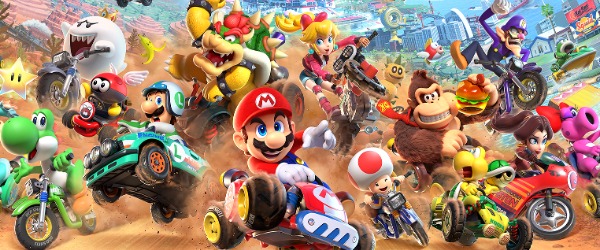
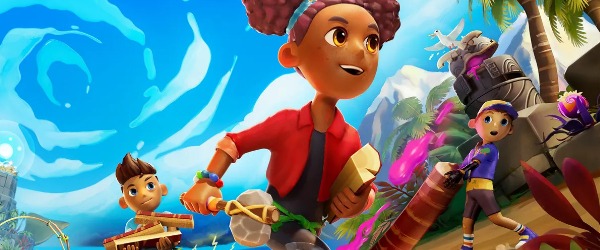
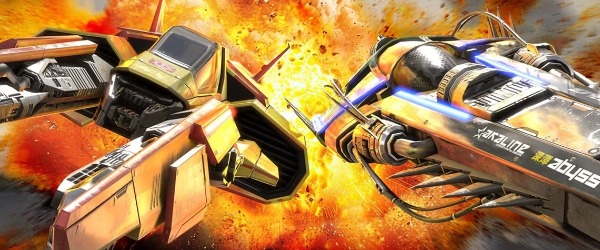
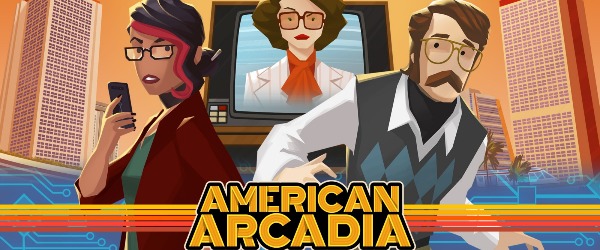










 Essay Pro
Essay Pro